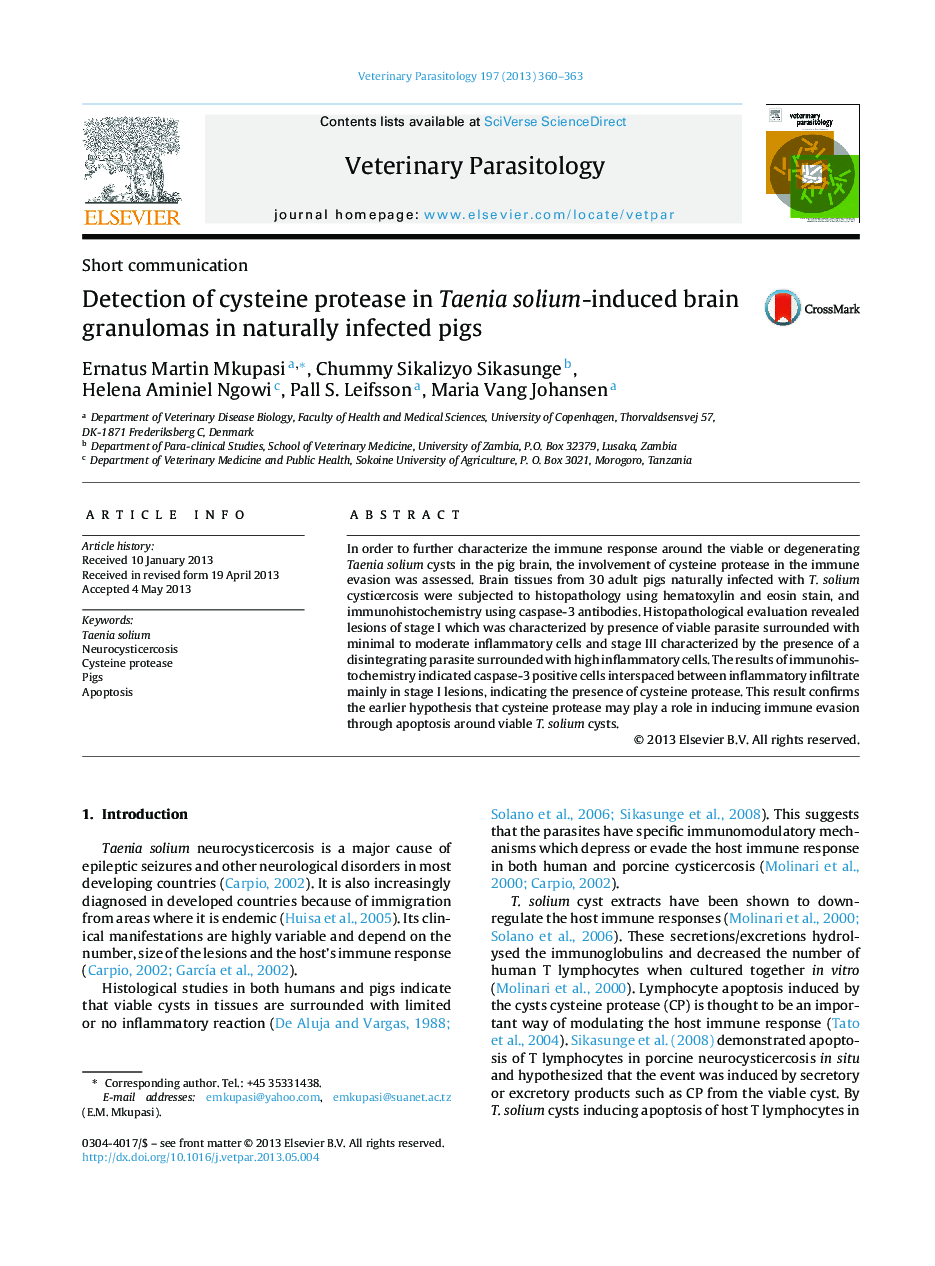| Article ID | Journal | Published Year | Pages | File Type |
|---|---|---|---|---|
| 5803675 | Veterinary Parasitology | 2013 | 4 Pages |
In order to further characterize the immune response around the viable or degenerating Taenia solium cysts in the pig brain, the involvement of cysteine protease in the immune evasion was assessed. Brain tissues from 30 adult pigs naturally infected with T. solium cysticercosis were subjected to histopathology using hematoxylin and eosin stain, and immunohistochemistry using caspase-3 antibodies. Histopathological evaluation revealed lesions of stage I which was characterized by presence of viable parasite surrounded with minimal to moderate inflammatory cells and stage III characterized by the presence of a disintegrating parasite surrounded with high inflammatory cells. The results of immunohistochemistry indicated caspase-3 positive cells interspaced between inflammatory infiltrate mainly in stage I lesions, indicating the presence of cysteine protease. This result confirms the earlier hypothesis that cysteine protease may play a role in inducing immune evasion through apoptosis around viable T. solium cysts.
